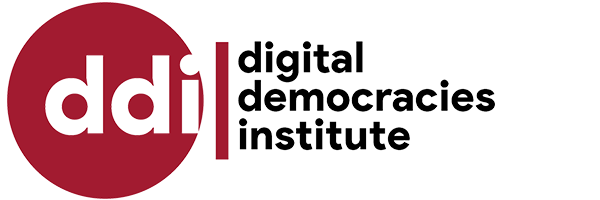
- This event has passed.
Fenwick McKelvey presents to the lab
Fenwick McKelvey studies algorithmic media – the intensification of software within communication infrastructure – through cases such as advanced Internet traffic management software and political campaign management software. His approach contributes to communication studies by demonstrating the opportunities to integrate software studies into the field while raising questions about the imbrication of software and communication.
Bell Canada, Canada’s largest telecommunications company, recently filed a request to Canada’s telecommunications regulator, the CRTC, to use machine-learning and artificial intelligence (AI) to filter fraud and spam calls (Marotta, 2019). Their request seems modest at first, helpfully eliminating a public nuisance. If approved, however, this decision will transform media regulation, establishing a precedent for using experimental automated systems to solve matters of open and free expression. This paper, in collaboration with Reza Rajabiun, takes Bell’s application as a critical case to understand the ramifications of AI for telecommunications regulation.
Bell’s request is part of a turn to increasing data surveillance to train automated systems that function as instruments of media policy (author; Kerr, Barry & Kelleher, 2020). We begin by situating Bell’s proposal within the historical and contemporary context of AI as/in media governance. From firewalls to deep packet inspection, telecommunications infrastructure has been the site of constant innovation in automation (author). AI builds on but departs from this tradition in its demand for data, its inscrutability and in the promise of ‘zero-touch’ networks. Next, we examine trade press coverage to identify the myths and motives driving adoption of AI. We conclude by critically reviewing Bell’s arguments before the CRTC, analyzing their implications for governance. As intervenors in these regulatory hearings, we bridge policy scholarship and action (Shepherd et al., 2014).
As the first public hearings about AI before a national media regulator, Bell’s case has global importance for the future of AI regulation (Balmer et al., 2020). First, the case undermines the effectiveness AI ethics as industry self-regulation (Greene, Hoffmann, & Stark, 2019). Bell Canada is located in Montreal, where the AI industry has agreed to the Montreal Declaration for the Responsible Development of AI—Bell is not a signatory. Outside of Montreal, Canada is perceived as a world leader in AI governance. It is among the first national governments to implement algorithmic impact assessments (author)—Bell has made no such commitment. Thus, this case demonstrates the ineffectiveness of ‘soft power’ regulation of AI through ethics proposals and government standards. Presently under review by the CRTC, Bell’s proposal could set national and international precedent.
